Fran Scott’s #Error404 show at BETT
It’s not long to BETT now where the Foundation education team will spend four whole earth days doing great works.
As well as a non-stop stand schedule of talks, demos and activities we’ve also got a number of off-stand monkeyshines including two live stage shows by Fran Scott, who you may have seen recently on the Royal Institution Christmas lectures. Fran will be performing her show #Error404: The Explosions-based computing show and revealing “Computer Science for the problem-solving, creative and imaginative subject it innately is and through live interactive coding, humour and explosions(!)”. (That had me at “explosions” and I was reading the sentence backwards.)
If the Raspberry Pi Foundation had a mantra, it would be “computing is not coding”. It’s so much more than that; in fact in the early years of education, it should just be called ‘Thought-provoking Fun’. Fran’s show is a brilliant practical demonstration of that, and she has a talent for explaining science and engineering principles in an entertaining way that everyone can understand. As well as computing the show hooks into the science curriculum (gases and combustion) and also contains dancing and bananas. There’s loads crammed in and it’s a fantastic show— it’s going to be packed, so get there early!
To tie in with the show we’ll be giving away goody bags containing everything you need to make your own (non-explosive!) version of Pi-controlled balloon popping which would make a fab classroom demo or even a great way to wake your parents up in the morning.
Where and when
The shows are on Thursday 22 Jan at 13:10 and Saturday 24 Jan at 12:55, both in the BETT Arena. Fran will also be on our stand (The Hub! near N8 visitors’ entrance) on Thursday afternoon between 16:00 and 17:00.
Find out more
You can read more about the show on Fran’s site and also download an information pack which includes links to the English Computing curriculum. You can also get in touch with Fran if you want to find out more about the show.
Warning: Blowing stuff up and messing around with pyrotechnics is dangerous so do not do it. Fran is a trained pyrotechnician and a member of the Association of Stage Pyrotechnicians. Do not blow stuff up or set light to stuff or play with matches or stick red Crayola crayons up your nose (as my brother once did). Bad things will happen.

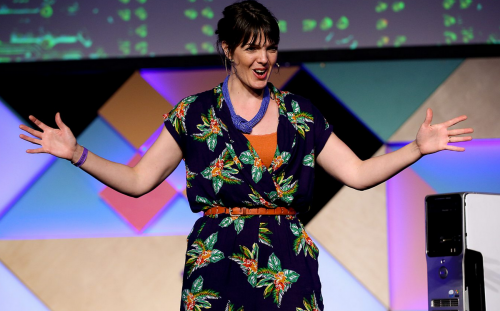
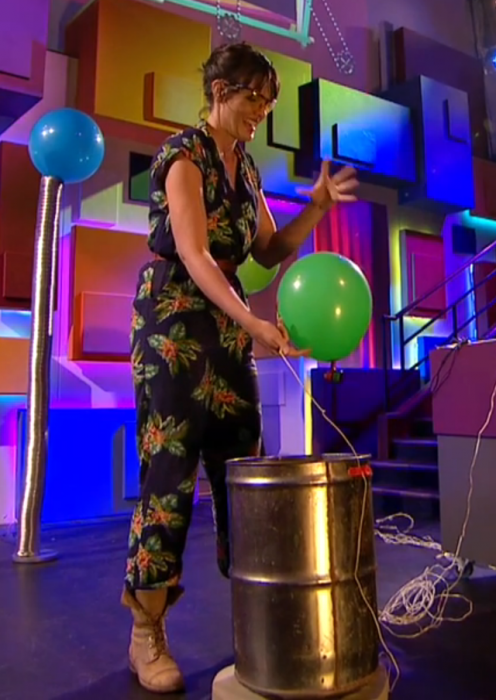

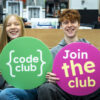
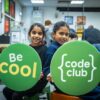

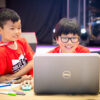
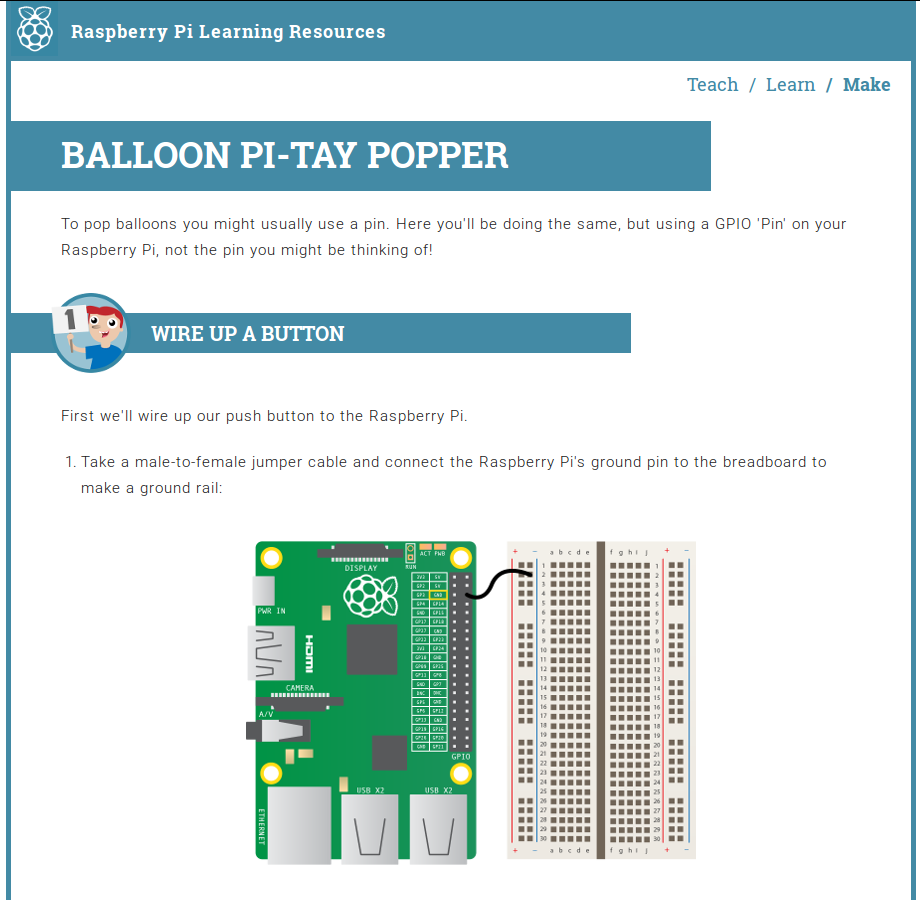
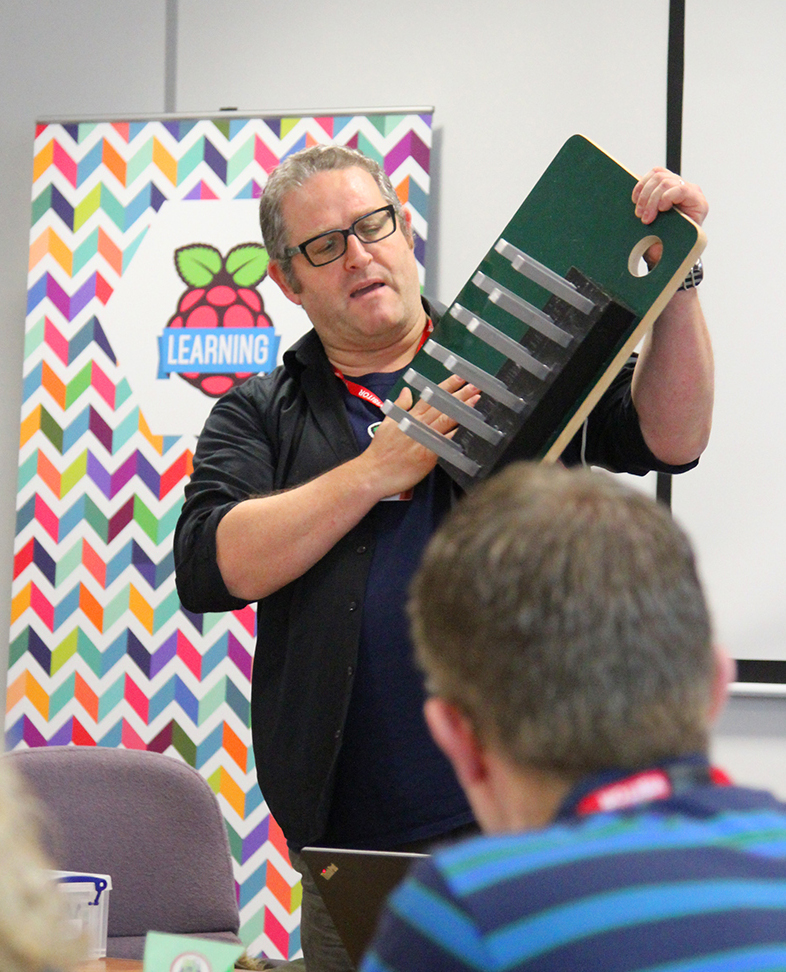
24 comments
Bantammenace
Dear Points of View: I watched this years RI lectures and just wondered whether it was just me who thought they were a bit light on the detail (i.e. theory or explanation) for the sake of making science look exciting and doing lots of stuff ? Again it may be just me but did Fran’s experiment work fully ? If it didn’t then why wasn’t that explained or repeated until she got the results she wanted? Is this the new scientific method? My take was that if you already knew the theory you could work out what was going on but if you didn’t then all you saw was things happening. No dis-respect to Fran et al btw but how does this kind of thing help a classroom teacher where practical sessions in the UK at least are almost a thing of the past ?
Clive Beale — post author
Fran had a few minutes to get across the *concept* of control software. It wasn’t a programming tutorial or a lesson on thermodynamics – it was a demo to show *young people* that behind the hardware is a program.
As for the straw-man on teaching (you’re not a teacher, are you ;)) the show plus our goody bags will indeed help classroom teachers run a practical session to demonstrate computer control using popping balloons, even in primary schools :)
Bantammenace
Clive, I’m always glad to be of assistance.
Clive Beale — post author
Cheers! :)
Hove
“how does this kind of thing help a classroom teacher where practical sessions in the UK at least are almost a thing of the past ?”
IMHO it doesn’t, nor is it supposed to. What is does do is even better: it opens the minds of the kids of what is possible; it excites them, it motivates them to try out stuff themselves. With the kids excited, some will want to DIY, and even if that’s just a few % of the kid population, then the RPF’s key goal has been met many times over.
Clive Beale — post author
Bingo! :)
Stewart Watkiss
To me education and fun should go hand-in-hand. Sometimes you need to do the “boring stuff”, but the more times you can present educational material in a fun way the better, TV and live shows provide a great way of doing that.
There is only so much that can be done on television, and the most important thing they can do is to get children enthused in science and technology. I’m talking from a parent point of view although I do help out at local schools and have seen some good examples of fun experiments / activities in classrooms as well.
I sat and watched through the lectures with my two children aged 6 and 9 and both of them were amazed by what they saw in the show.
After the show they wanted to do some of the experiments at home and fortunately most of the experiments can be repeated, although perhaps on a smaller scale (would be hard to rewire the Shell building for a “home” experiment).
We’d already done some Makey Makey activities, but one thing that they did like was the VR demonstration. So straight after the show I ordered a Google Cardboard and we’ve had fun following the roller coaster which is very similar to the demo on TV.
The one thing that I think would be good would be to have a “do try this at home guide” that could be downloaded from their website – which explains more about the theory and provides more details about the experiments. Even without that it doesn’t take much “googling” to find similar experiments that can be done at home. There are also a load of examples of examples on the Raspberry Pi website (eg. http://www.raspberrypi.org/resources/make/ ) that provide other activities that can easily be done at home and are just as much fun as the ones on the TV.
In terms of the explosions show then I think they are amazing. I haven’t seen the #error404 one one, but I took my daughter along to a different one at the Big Bang Fair last year ( http://www.thebigbangfair.co.uk/ ) and she had a great time. She loved watching the show and I’m sure learned more than if it was presented as just theory. Unfortunately it’s not quite so easy (and sometimes far too dangerous) to repeat those experiments at home, but watching them in a live show is very impressive.
Ian
Dear Bantammenace: You appear to have mistaken the Raspberry Pi blog for the Daily Mail Online comments. I’ve re-written your post for you so that non-DM readers can appreciate it too:
“I watched this year’s RI lectures and just wondered whether it was just me who thought they were pitched just right (i.e. theory or explanation) for the sake of making science look exciting and doing lots of stuff? Again it may be just me but didn’t Fran’s experiment work wonderfully? If it didn’t then I was glad that it wasn’t explained or repeated until she got the results she wanted – this isn’t the scientific method after all, just TV. My take was that if you already knew the theory you could work out what was going on and if you didn’t then you saw was things happening that introduced important concepts. Respect to Fran et al btw – this kind of thing really helps a classroom teacher where practical sessions in the UK at least are a harder to do than in the past.”
Bantammenace
Thanks for getting me back on message. Perhaps your Comment+ version could now be forwarded to the Guardian :)
Raspberry Pi Staff Liz Upton
Last time I read the Guardian comments they were a *lot* nastier than that.
Carrie Anne Philbin
The Raspberry Pi Stand at the Bett Show this year is going to be a blast. Literally. (Do you see what I did there?)
Charlotte
*headdesk*
Matt Richardson
We’ll need you over in the electric eel post right away to make some fish puns.
Archisman Panigrahi
Any news about the Christmas Competition ?
Niall Saunders
There is a valid point here, somewhere, and I don’t think it is just that someone like me has just become all ‘growed up’, and so simple sciency stuff (as seen on the likes of the Christmas Lectures) no longer entertains for long enough to become educational.
I suppose that, for modern kids, an educational entertainer (i.e. teacher) has to work so much harder just to get their tiny little attention spans – if it isn’t frak-tastic Dke Nukem 3D surround touchy-feely vision (with real blood), then the audience is mostly just ‘not bovvered’.
To kids exposed to the iCrap world of chuck-away electronics, perhaps some of this stuff is just less interesting than a box of 24 different-coloured felt-tip pens was to us when we were kids (back in the pre-decimal era).
So, credit where credit is due – all those educationalists trying their hardest to get kids involved, despite expenditure cut-backs, despite ridiculous elvin-savety restriction deserve accolades for their efforts.
Shame though for discouraging scientific experiment – I, personally, learned a huge amount of science simply by developing a saltpetre-based method of clearing dog mess off pavements. I had also figured out the critical stoichiometric ratio of acetylene in air by the age of 14, and had a rudimentary knowledge of ballistic physics (involving sparklets CO2 cartridges, 3/4″ copper water pipe and a sharpened masonry nail) by the age of 16.
Good science teaches you to learn from your mistakes – by actually doing things incorrectly the first time round.
Cheers,
Niall
Ed Farrell
Want to join in this conversation but know nothing about teaching?! Don’t worry, here’s the template!
1) Things ain’t what they used to be.
2) Nonsensical invented statements about education that disparages both kids and teachers.
3) The main point: *I* was really clever and brilliant at science/maths/computing + examples of exactly how brilliant.
4) Trite conclusion that doesn’t help in any way.
Easy! ;)
Seriously – well done to the Foundation for all their hard work helping to get computing back into UK schools and for getting someone like Fran to come and show teachers that computing is accessible and fun!
Pithagoros
I had a CD case out and was projecting a real time Skype of a far off relative into “thin air” within minutes. Kids were literally squealing and jumping around.
It was so easy and with such effective results, I can only thank them for demonstrating that.
I am not sure that it is helpful to hurl derision at people because of differing viewpoints (but it is quite amusing).
Clive Beale — post author
I wouldn’t have put it like Ed but can understand his frustration: sweeping generalisations about teachers, kids and learning really don’t help any argument you are trying to make. Much more helpful and interesting are posts like yours, Hove’s and Stewart’s that make specific points. So thanks! :)
AndrewS
It were all fields when I were a lad…
Bantammenace
btw I’m not a teacher. Its interesting to see how the discussion does seem to have got some people a little bit vexed. I’m just a parent who wondered whether this kind of thing has a lasting impact. I fear that students may be switched off when their subsequent lessons don’t reach such heady heights. To gloss over the heavy-lifting may not do anyone any good in the long run. Give me informative and interesting over exciting anyday, but thats my problem…I’ll leave it to the experts to slug it out.
Raspberry Pi Staff Liz Upton
You’re right – this kind of conversation does make some people a bit upset. Teachers we’ve spoken to (and we speak to a lot) are pretty wary of taking part in discussions like this, in large part because there’s a significant body of people out there who, because they were once pupils or are now the parents of pupils, believe they have as much understanding of pedagogy, educational science and classroom technique as teachers do, and it’s not much fun having your own expertise and experience dismissed.
Clive Beale — post author
Students don’t have some finite store of learndrenalin that gets consumed by lessons full of exploding gases and Van der Graaf generators and Coke ‘n’ Mentos rockets that then makes them all lethargic when it comes to “informative and interesting” learning. Good teachers have a magic porridge pot of pedagogical skills and shenanigans — that would fry the brains of mere mortals should they dare open it’s sticky lid — and over the course of a term they use them all. Of course in one lesson they might pop balloons…
As for what I think of fun and teaching, @tombennett71 says it much better than I can:
“Can learning be fun? Of course. Is learning sometimes fun? Undoubtedly. Should it be fun? That’s a whole different question. Simply saying yes damns every act of learning that isn’t enjoyable, and you would have to be completely bonkers to think that everything you learn should be fun as well. Almost everything worth achieving requires sweat, grit and the ability to stick with something when it’s hard – also qualities I’d like to see in my students in general. I don’t want them bored, but I have no problem if something they do is boring, if it’s necessary. I want them to plug away at problems until they break through: that’s the pleasure, and it’s worth its weight in diamonds.”
Billy
It’s not just teachers who are wary of on-line discussions, far too many on-line discussions degenerate into on-line arguments, where derision and sarcasm are the order of the day and the original topic is of secondary importance and left far behind.
This maybe a reflection of our adversarial justice system or the televisation of Prime Minister’s question time. To be honest, the reasons are fairly irrelevant.
Just try and be nice and set a good example for the adults of tomorrow, otherwise nothing will change, and the art of discussion will be left in the hands of an enlightened minority, while the majority will just slag one another off as they’ve been taught to do.
Nicola Taylor
I saw the show today @ BETT despite the technical difficulties Frana was amazing!!!